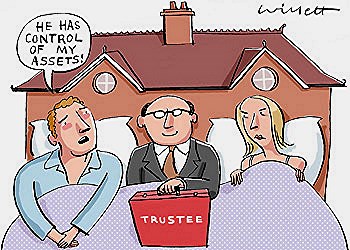Acting Bona Fide
Hriczu v Bailey re Estate of Mackey 2011 BCSC 454 the issue before the court was whether a beneficiary could force the executor to sell a parcel of property and distribute the proceeds amongst the beneficiaries, where the executor had been holding the property for 11 years post death without sale.
The deceased died in 2000 and left a will which stated in clause 3(A) –
“my said trustee may in their uncontrolled discretion decide upon, or to postpone such conversion of my estate or any part or parts thereof for such length of time as they may think best, “
The aforesaid power to postpone a sale is an almost standard discretion provided in wills by most lawyers.
Most executors will not be willing or feel it is appropriate to delay a sale of property for as long as 11 years unless the property is unusual and has a particular
upside in value. In this particular case the parcel of property was 17.5 acres of undeveloped land in the agricultural land reserve , that had a value of $118,000
at the time of probate, but had since become 10 times more valuable.
The court held that so long as the executor had a bona fide intention to perform his obligation to convert the assets and to distribute them in accordance with the will, the exercise of his discretion should not be interfered with by the court.
In Lottman v. Stanford, [1980] 1 S.C.R. 1065, the Supreme Court of Canada considered a Will which directed the executors and trustees:
To sell, call in and convert into money all of my personal estate at such time and in such manner and upon such terms as my Trustees at their absolute discretion determine, with power to them to postpone such conversion… (at para. 2)
The court found that the executors were not under a duty to convert, and declined to compel the executor to convert the real property.
The following quote is taken form the decision:
[15] In Re Anthony’s (1977), 17 N.B.R. (2d) 364 (Q.B.), the executor and trustee of a Will which was strikingly similar to the Will before this court, applied for a determination of whether or not she had discretion to postpone the time for sale of property for so long as she deemed advisable. The application was brought 17 years after the testator’s death. The beneficiaries did not appear to speak to the matter.
The court, in holding that the trustee had a discretion to postpone the sale, said:
- A trustee may exercise all such lawful powers as are expressly reposed in him by the instrument creating the trust and may use such discretion with respect to the time and manner and extent of exercising them as is permitted by the terms of that instrument. He must however, exercise the powers reasonably and in good faith and for the purposes for which they were created, after first making any needed enquiry.
- The Court will not interfere with the bona fide exercise by a trustee of a discretionary power. Where the exercise of the power is obligatory but the time and manner of its exercise are discretionary, the trustee’s discretion in those respects will not be overridden by the Court.
- Discretion, though absolute, must be exercised honestly, reasonably, intelligently and in good faith. And discretion must not be allowed to become an absence of responsibility Courts will not as a general rule interfere in the exercise of an absolute discretion by a trustee if the trustee acts honestly and fairly…
10 Subject to this, this Trustee, in my opinion, has a discretion to postpone the time for sale…
[16] I accept that those principles apply here. The Executor has been given a broad discretion to postpone converting (or selling) the land in question. That discretion must be exercised “honestly, reasonably, intelligently and in good faith”. It cannot be exercised in such a way as to give the executor a personal benefit or put him in a conflict of interest. It must also not be exercised in such a way as to defeat the purpose of the testator, which was to make a gift to each and every one of her five beneficiaries. In other words, the executor is not entitled to refuse to convert, or to postpone conversion indefinitely.”








